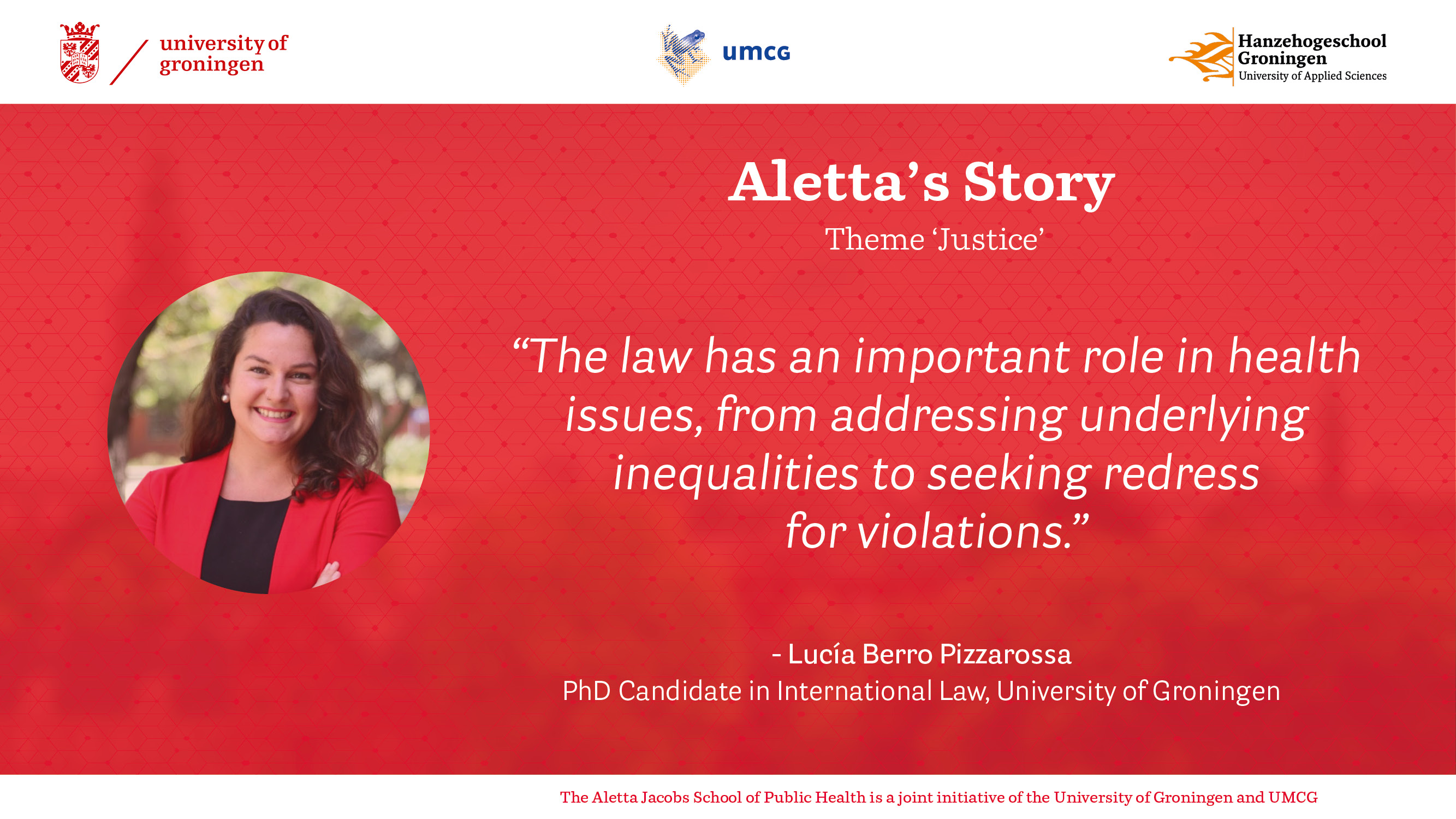Lucía Berro Pizzarossa
Lucía Berro Pizzarossa, PhD candidate in International Law, University of Groningen
It was my work at the law clinics in my faculty that made me realise how crucial sexual and reproductive rights actually are. I was a fresher at university in Uruguay and was volunteering at the law clinics of the Faculty of Law. This experience unveiled the shocking gap between what I was taught in class and people’s lived experiences. I vividly remember one story. A young woman came to us narrating the ordeal that she went through in order to get access to basic reproductive health care. Her story was heart wrenching; a circle of violence that she—and her children—was trying to break out from. I realized how essential the clinic was to her (and other women) in order to guarantee access to sexual and reproductive rights. Her participation in civil life, her possibilities to work, to pursue a career, to provide for her kids and more depended in whether she could make these very important decisions by herself, freely and responsibly (from engaging in sex to decide if, when and how to have children). My work there made me question the role of the law in guaranteeing human rights for these women and in particular their rights to control their bodies and therefore their destinies. I have since then worked in the field of sexual and reproductive rights combining research and advocacy work.
In health—and in particular—sexual and reproductive health, law plays a great role. All around the globe, laws can restrict or enable people’s enjoyment of the right to health. We are "boxed" as women or men (as if those were the only categories) and imposed a series of behaviours, expectations and so on based on specific physical characteristics. So we have situations of injustice, lack of access to healthcare or restriction on bodily autonomy rights based on differences that are socially constructed and given the authority of law. My contribution to the Aletta Jacobs School of Public Health is to bring to the table the international human rights legal framework that can be used to monitor a country’s actions and hold states accountable for the realisation of the right to health highlighting the role of gender. I also want to show the law as a site of transformation. I firmly believe—and I saw examples of this in the clinics—that the law is a powerful tool that we can use to counter effect the inequalities that exist in society and positively affect change in people’s access and enjoyment to sexual and reproductive health and rights. I think that Aletta can be a connecting hub for people interested in issues of health and justice. Health inequities require a multidisciplinary approach so I intend to gain insights from colleagues from political science, psychology, economics and more.

| Last modified: | 24 May 2019 3.16 p.m. |


